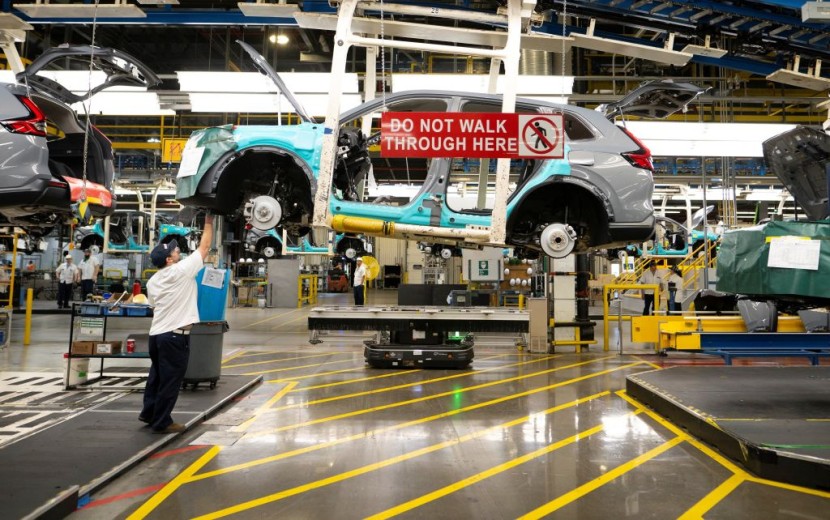
Millions of Americans breathe in poisonous chemicals every day, and they probably don't even realize it.
A recent study revealed that people are breathing in cancer-causing chemicals while in their cars.
Researchers analyzed the cabin air of 101 electric, gas, and hybrid vehicles with model years ranging between 2015 and 2022.
The source of the cancer-causing compounds in the cabin air is seat foam.
Car manufacturers add chemicals to seat foam and other materials to meet an "outdated" flammability standard with no proven fire-safety benefit, explained researchers.
99% of vehicles were found to contain a flame retardant known as TCIPP, which is currently under investigation by the US National Toxicology Program as a possible carcinogen.
Flame retardants are linked to neurological and reproductive harm as well, according to NDTV.
Most cars also carry two more flame retardants, TDCIPP and TCEP, which are deemed carcinogenic.
"Considering the average driver spends about an hour in the car every day, this is a significant public health issue," said Rebecca Hoehn, lead researcher and toxicology scientist at Duke University.
It's especially concerning for drivers with lengthy commutes or with child passengers, who tend to breathe more air per pound than adults.
The levels of toxic flame retardants are known to be the highest in the summer months, as heat increases the release of chemicals from the car materials.
Patrick Morrison, director of health, safety, and medicine for the International Association of Fire Fighters, told the outlet,
"Firefighters are concerned that flame retardants contribute to their very high cancer rates."
Furthermore, the study shows that these toxic flame retardants serve no real purpose or benefit to the vehicles.
Lydia Jahl, study author and scientist at the Green Science Policy Institute, said people can also try reducing the number of flame retardants and advised they open their car windows and park in shaded areas or garages.
"Commuting to work shouldn't come with a cancer risk, and children shouldn't breathe in chemicals that can harm their brains on their way to school," she added.









